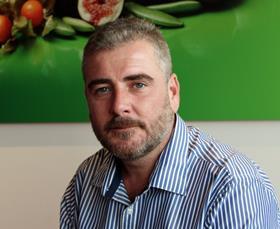
How important is Latin America as a sourcing hub for Special Fruit?
Ben Maes: We have been working with Latin America for decades, sourcing mainly from Chile, Peru, Brazil and Colombia. Since the beginning, Special Fruit has aimed for a qualitative year-round assortment, which in practice means having a strong presence in Latin America, as well as in southern Spain, North Africa and Europe.The climate is suitable for key fruits and vegetables, such as avocados, mangoes, asparagus and blueberries, resulting in strong, good-quality fruit.
Why do growers in Latin America select Special Fruit for the European market?
BM: As Special Fruit works with high-value customers in Europe, we have always been in a position to give market-related returns in exchange for high-quality fruit. Additionally, we support our growers in varietal selection, logistics, quality, supply planning, ripening, packing and marketing to European retailers and foodservice channels, with a sustainable, long-term business approach.
In this sense, our local presence in Latin America, with our office and team at Del Sol Fresh, is key to supporting our core activities for our growers. The multiple benefits of having a local team on the ground that can visit the packhouses and fields include better quality control, a better understanding of the market and the culture, and better flexibility when it comes to logistics.
What has the impact of Covid-19 been at the company?
BM: At the start, it certainly affected our supplies, logistics and ways of working. At this stage, we’ve learned to deal with it and adapt accordingly. Our priorities were to keep the business open, ensure the safety of our team and our growers and keep each other and our customers informed on important changes at the local grower base.
In Europe, consumption of certain exotics has decreased since the start of the pandemic, while other products have increased in volume, penetration and relevance to European consumers, including blueberries, avocados and asparagus. These products combine two important features that fit in with new consumer behaviour: health and versatility.
What developments are you seeing in Latin America when it comes to avocados?
BM: There are a lot of developments. Colombia is the new kid on the block, with great potential but a need to fine-tune its infrastructure, field management and packing procedures. We also expect a lot from Peru in the coming years, with new plantings and investments.
Ecuador used to produce green skin avocados, just for the local market, but it is now focusing on planting and exporting Hass. Brazil also has huge potential to become a big player, given the land, money and water available. They also have a proximity advantage to the European market compared with Peru and Chile.
Chile has been affected by climate change the most. Growers are working hard on water management. They have a very strong local market, which they created themselves through years of promoting the fruit.
What about other items like vegetables and berries?
BM: A few months ago, we became the biggest service provider for overseas asparagus in continental Europe. This shows the strength of having a lean and agile team and the importance of long-term relationships with the growers. Since we have worked with most of our producers for many years, we try to grow with them each year. In blueberries, we are seeing growing interest in organic and a clear focus on better quality varieties.
Enjoyed this free article from Eurofruit Magazine and its team of editors? Don’t miss out on even more in-depth analysis, plus all the latest news from the fresh produce business. Subscribe now toEurofruit Magazine.



